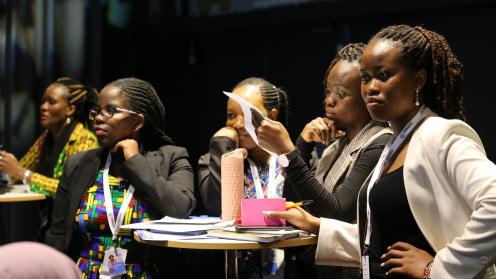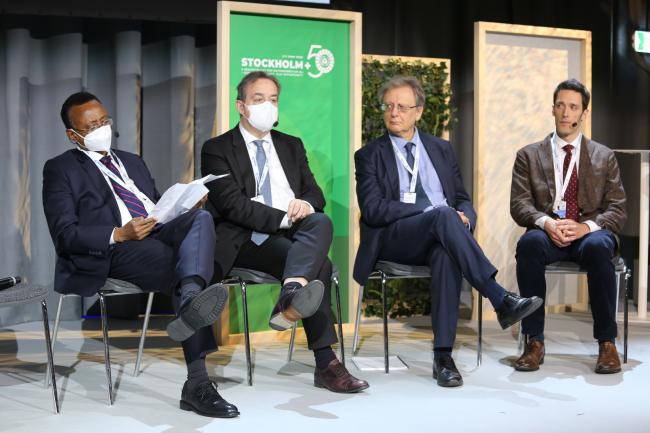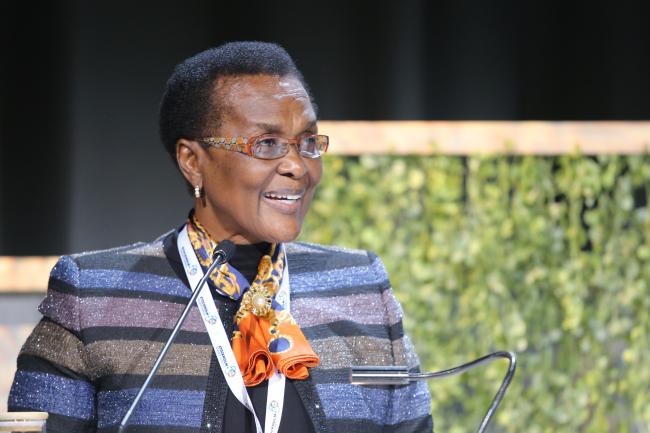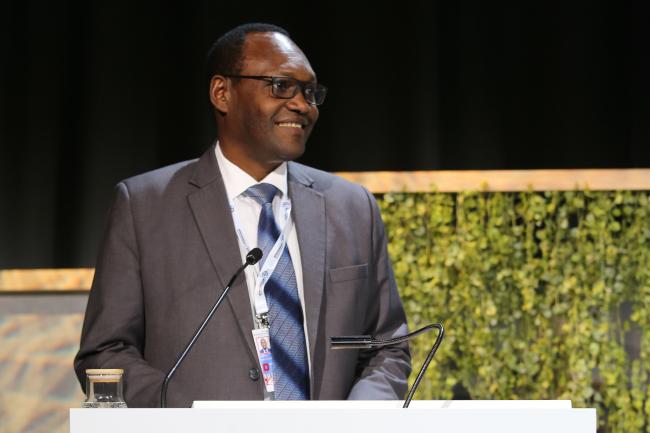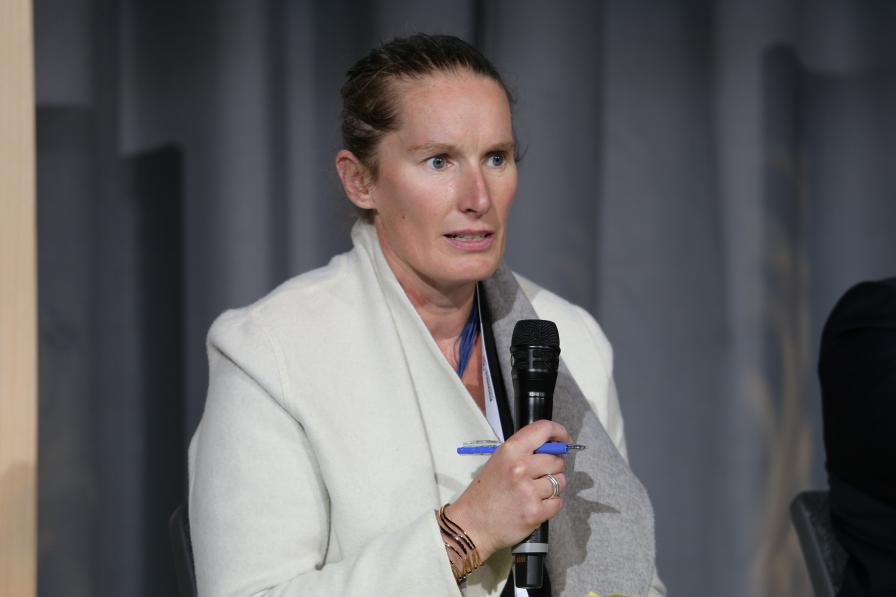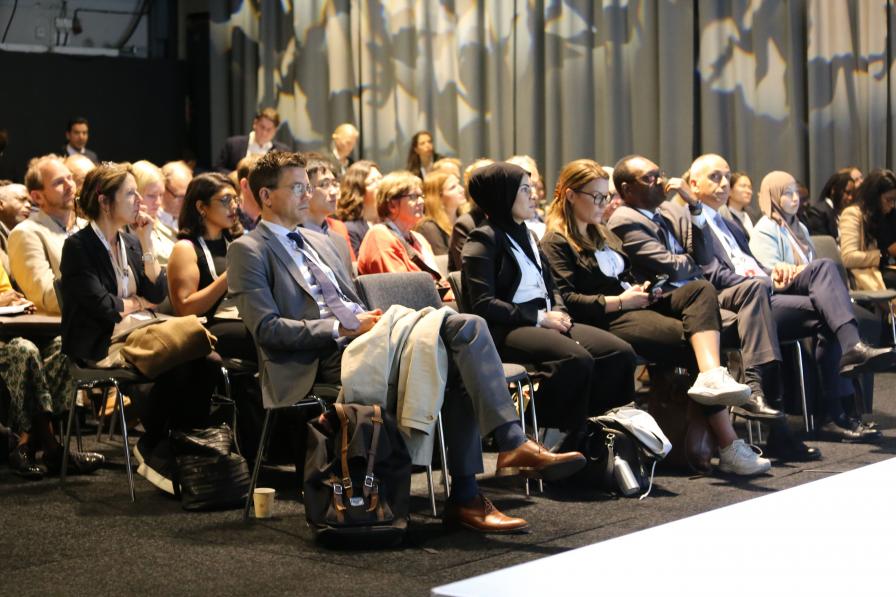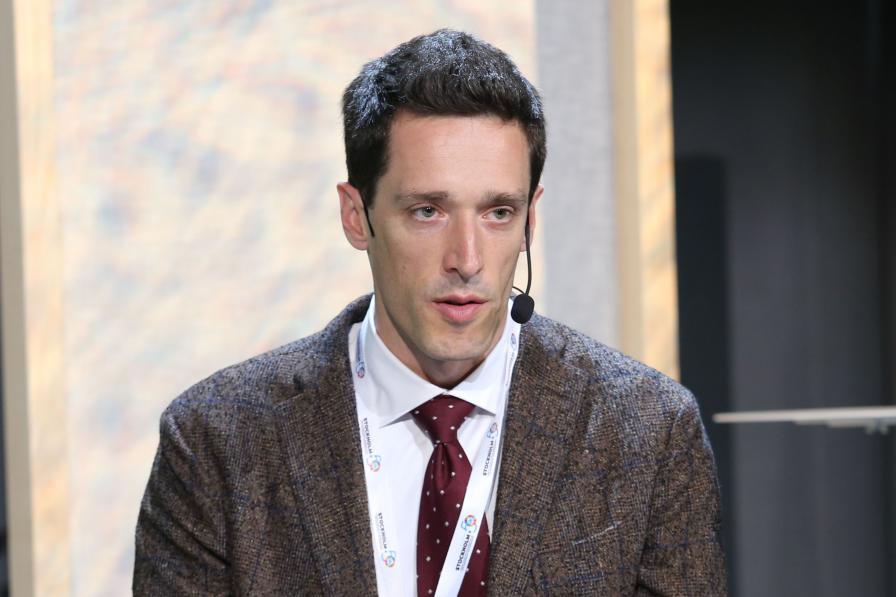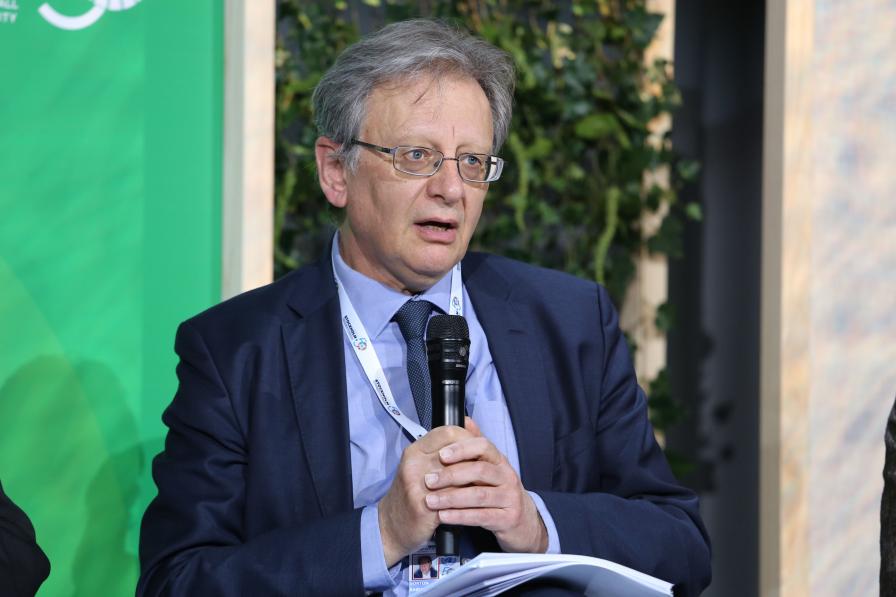About
Experts in climate and climate finance discussed challenges that climate change presents to fragile countries and ways in which climate is a threat multiplier that elevates the need to address climate change.
Organized by: Government of Kenya
In a side event moderated by Nancy Karigithu, Principal Secretary, State Department for Shipping and Maritime, Ministry of Transport, Infrastructure, Housing, Urban Development and Public Works, Kenya, experts in climate and climate finance discussed challenges that climate change presents to fragile countries and ways in which climate is a threat multiplier that elevates the need to address climate change.
Chris K. Kiptoo, Principal Secretary, Ministry of Environment and Forestry, Kenya, emphasized the need to convert promises related to climate policy into action, especially given the ways in which a warming world compounds existing grievances and vulnerabilities. He highlighted Kenya’s efforts to prioritize this challenge within the UN Security Council and encouraged a discussion focused on tangible, evidence-based reasons for using finance to address climate change and peace.
Lee White, Minister of Water, Forest, the Sea and Environment, Gabon, recalled that Gabon’s Minister of Defense prioritized climate change issues 15 years ago due to its potential to destabilize the continent. He noted that, while his country is one of the most resilient to climate change in Africa, its neighbors will experience impacts.
Yannick Glemarec, Executive Director, Green Climate Fund, stressed the need to take risks in financing. He said environmental and social safeguards for lending, such as gender policies, should be seen as action creators rather than barriers. He also noted the need for capacity building to create the new markets and asset classes that are necessary.
Valerie Hickey, World Bank, noted the danger of weighing in on the wrong side of conflicts, and urged actors to involve stakeholders at the center of our work to ensure legitimate honest brokers are guiding engagement in conflict situations. She said “solutions move at the speed of trust” and should not become a threat multiplier on their own.
Guleid Artan, Director, Intergovernmental Authority on Development (IGAD) Climate Prediction and Application Center, stressed that for countries in the Horn of Africa, Nile Valley, and African Great Lakes region, “climate change is not a thing of the future, but a present challenge.” He highlighted heavy rainfalls beyond recorded levels from 2018-2020 followed by years of extreme drought, which left 40 million people in the region in need of humanitarian aid. He stressed that local economies mostly based on agriculture and pastoralism are tied to climate. He highlighted studies showing that vegetation reduction increases the likelihood of conflict, noting the IGAD region contains three countries with the highest number of internally displaced people globally. He urged investing in building resilience as a development response rather than a humanitarian one.
Dane McQueen, Senior Advisor, Ministry of Foreign Affairs and International Cooperation, United Arab Emirates, and Director of Programs and Partnerships for the 28th session of the Conference of the Parties to the UN Framework Convention on Climate Change (UNFCCC COP 28), emphasized that solutions are increasingly clear on the technical side, including with respect to management boards, irrigation, and resistant crops. He highlighted the need to move the discussion towards climate and development finance, including attracting funding towards vulnerable countries. He urged placing fragility at the heart of the discussion, pointing to forthcoming UNFCCC COPs 27 and 28 in that respect.
Andrew Norton, Director, International Institute for Environment and Development, addressing the African drylands, noted that when systems decay and die, social vacuums are created and are usually filled by smugglers and other unlawful actors. He highlighted the provision of social services, and stressed that narratives over increasing local-level resource competition that leads to conflicts is not supported by evidence. Offering examples from Kenya, he underscored the need for initiatives sensitive to the local political economy that can reach the most vulnerable.
In the ensuing discussion participants focused on, inter alia: energy poverty in Africa and the need to operationalize the principle of common but differentiated responsibilities; the impact of COVID-19 and the likely impact of the war in Ukraine on extreme poverty, including on SDG 1 (no poverty); channeling financial resources towards the developing world; the climate, water resources management, and conflict nexus, including transboundary water management; and the need for policies for the most vulnerable, including women and youth.
Moderator Karigithu summarized main messages, including the need to:
- bring onboard all stakeholders, leaving no one behind;
- develop climate-fragility frameworks, attracting sufficient financial resources;
- prioritize the African continent due to its fragilities and level of development
- tailor our approaches to climate adaptation and mitigation, particularly empowering women;
- attract adequate resources for the required energy transition towards renewables; and
- move from commitment to action.
Contact:
Kevin Thuo | kevinthuo247@gmail.com
More Information:
Kenya To Be Africa’s Voice On Climate Change At The UN Security Council
To receive free coverage of global environmental events delivered to your inbox, subscribe to the ENB Update newsletter.
All ENB photos are free to use with attribution. For photos of side events during Stockholm+50, please use: Photo by IISD/ENB | Angeles Estrada Vigil
